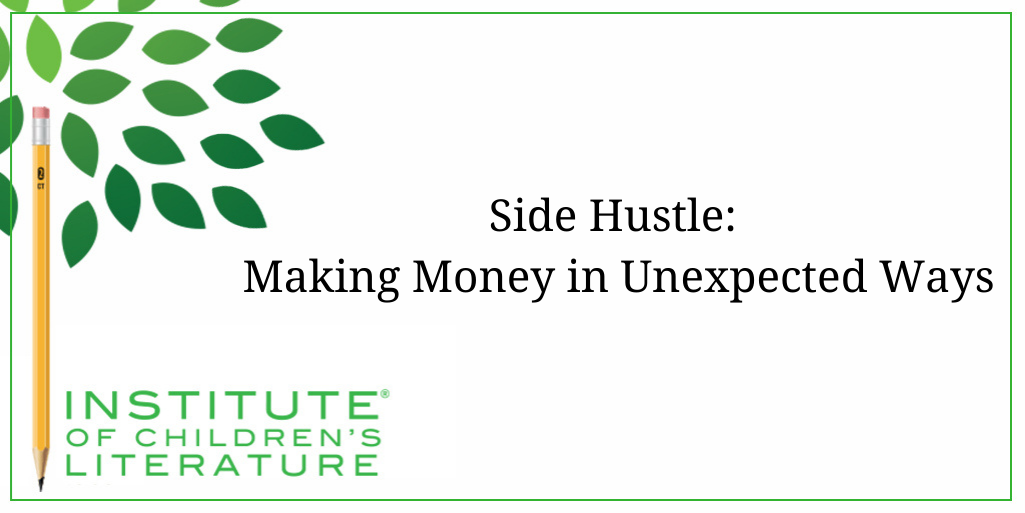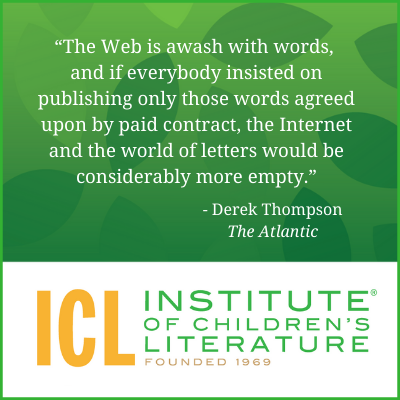
5 Ways Writers Can Prep for 2025 Goal Setting
Before we roll on to the new writing year, let’s harness our optimism for the blank slate before us and prepare for our 2025 Goal Setting just for writers.

We teach our students how to write and get published!
View our Course Catalog >
If you begin asking published writers how much money they make (and they answer), you quickly discover that focusing on one area of writing is rarely a quick route to making a living from writing. In fact, many (if not most, I’m thinking most) writers do not make a living solely from writing income. Those who do often build their writing income from a variety of sources. And if the reason you decided to focus on your writing was to increase your family’s income, it’s wise to start right off understanding that being flexible and versatile is going to increase your chances of being able to do that sooner rather than later.
Just hours before I sat down to write this, I received a message on LinkedIn offering me some writing work. It isn’t the sort of writing I consider my primary writing love, but it is paying work with a deadline and payment that relies on my skills as a writer. As it turns out, I won’t be taking it. My deadline schedule is tight now, but the reality is that to find extra writing income, you need to (1) keep your eyes open, (2) put effort into searching, and (3) put yourself in the places where writing might appear.
For example, I have the account on LinkedIn that gives details of my skills and history, thus I sometimes get offers there. I also check out sites where possible jobs are posted such as Working Nomads or work-for-hire Facebook groups. At any given time, there are usually several opportunities that I am qualified to fill with deadlines not far into the future. That means that I can fit one in when I have open spots in my schedule. I actually make my living writing so this kind of thing is essential for my income, but it can also help you begin to build your writing income and publications when you’re closer to the beginning of your career.
One place I did a good bit of writing early on to increase my writing income in places that were decidedly children’s writing adjacent. I wrote for regional parenting and family magazines, both print magazines and online. I found the opportunities for paid parenting content online outweighed the quick opportunities in print.

I’ve also written for very low pay children’s magazines online. Many of these don’t exist anymore, but there are still some online children and teen opportunities, especially if you write nonfiction and are willing to write about either pop culture, or to interview children and teens in your area who are doing unusual and helpful things for their community. And a very short piece I once wrote for very little money for an online children’s site went on to sell to a testing company for over a thousand dollars. This leads me to another good thing about online work. Many print magazines want more rights for your work so they can do the reselling to testing companies themselves and gain that money, but these tiny low-pay online magazine deals often come with agreements for far less rights, leaving you free to get the money when testing companies come to call.
For many writers, fees for public speaking match or exceed the money they make from their actual writing. By public speaking, I mean things like school visits, leading writing workshops, or being a speaker talking about some aspect of writing. It’s important to know that school visits can begin before you’ve published your first book. I was invited to do my first school visit based on my magazine work alone and the kids loved the visit. I tailored my visit to the topic of asking questions and chasing the answers (a topic near and dear to my heart). Kids loved finding out how I researched my article subjects and teachers loved the fact that I was helping instill a love of research into the kids. I’ve since done a number of school visits on the topic of research and research sources. All have been paid visits.
During the pandemic, in-person public speaking has been drastically curtailed. Some writers have continued to do school visits via Zoom (though at a lower fee and sometimes at no fee to help out struggling school districts) and more and more opportunities for Zoom writing workshops have popped up. I’ve done several of these to large audiences and though the pay was less than a thousand dollars each, it was still decent money for the time involved. The benefit of Zoom public speaking is the lack of travel time, travel fees, and worries about what to wear. The transition to online public speaking has been challenging sometimes, but it does offer opportunities, especially for writers who have difficulty traveling.
Public speaking is only one way to lean on your skills and passions for money. I’ve also written short articles about writing for both print and online writing magazines. But writing isn’t my only skill or passion. I’ve also written recipes (because I love to bake) and I’ve written crafts (because I love to make things). If you like crafts, there are many opportunities (both in print and online) to use the skills you’ve gained from it. You can design your own course to teach how to make a very specific project (there are a number of class and skill sharing apps and websites that pay those who can offer classes).
Another option would be to sell how-to articles. One thing I did regularly when my daughter was young was to collect possible recycled craft supplies (paper towel and toilet paper rolls, packing materials, paperboard from cereal boxes, twist ties, etc). Then a couple times a year, we would dump out all the supplies on a table and brainstorm cool things to make out of them. If the result was easy to replicate and attractive, I sold them as crafts to magazines like Highlights. My daughter’s input was hugely valuable in seeing what a child in the Highlights age group could make and it gave us a good bonding time as well. A win all the way around. Many of my early publication credits were crafts.
Making things doesn’t have to be your only possible way to marry your interest with your output. I know one writer who loves puzzles and has built a good deal of her career on writing puzzles (including educational puzzles). I know another who adores quizzes, especially funny ones. She took her familiarity with quizzes and love for the form and began writing quizzes for teen magazines and built many of her early credits from that. So look at the things you love doing and mine those items for possible money.
It’s great to be a dreamer, but a certain amount of reality is useful as well. It takes time to begin to see real money from your writing. Don’t expect to become a full-time writer overnight. And know that the more you keep all your eggs in one basket, the longer that building of income can take. At the same time, being very focused on one area of writing (like fantasy novels, for example) may mean it takes years before you see enough income to consider yourself a full-time writer, but it will allow you to build better name recognition in that specific genre and hone skills in that type of writing until they are truly sharp. In the end, you could easily end up making more money than the writers to are versatile. But be patient with yourself. Judge what you want most from your writing. And make a plan to accomplish that. In the end, the only limits are the ones you allow. Happy writing!
With over 100 books in publication, Jan Fields writes both chapter books for children and mystery novels for adults. She’s also known for a variety of experiences teaching writing, from one session SCBWI events to lengthier Highlights Foundation workshops to these blog posts for the Institute of Children’s Literature. As a former ICL instructor, Jan enjoys equipping writers for success in whatever way she can.

Before we roll on to the new writing year, let’s harness our optimism for the blank slate before us and prepare for our 2025 Goal Setting just for writers.

Writers can be thin-skinned when it comes to getting feedback on their work. Let’s look at 4 ways to positively deal with constructive criticism!

Rejection is part of the territory when it comes to being a writer. Today we offer reflection for writers to help redirect your efforts after a rejection.
1000 N. West Street #1200, Wilmington, DE 19801
© 2024 Direct Learning Systems, Inc. All rights reserved.
1000 N. West Street #1200, Wilmington, DE 19801
© 2024 Direct Learning Systems, Inc. All rights reserved.
1000 N. West Street #1200, Wilmington, DE 19801
© 2024 Direct Learning Systems, Inc. All rights reserved.
1000 N. West Street #1200, Wilmington, DE 19801
© 2024 Direct Learning Systems, Inc. All rights reserved.

1000 N. West Street #1200, Wilmington, DE 19801
© 2025 Direct Learning Systems, Inc. All rights reserved.

1000 N. West Street #1200, Wilmington, DE 19801
©2025 Direct Learning Systems, Inc. All rights reserved. Privacy Policy.